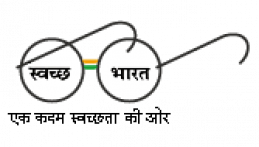The State of Odisha is the Pioneer State to implement the system of Lokayukta by enacting the Odisha Lokayukta Act, 2014. The Odisha Lokayukta Act,2014 has come into force with effect from 7th July, 2018 & the body of the Lokayukta has been established with effect from 28th February, 2019.
Hon’ble Shri Justice Ajit Singh, Former Chief Justice, Guwahati High Court on his appointment, assumed the office as the First Chairperson of the Lokayukta, Odisha on 20th March, 2019.
Lokayukta is meant for the common man, who is the most important element of the democratic system. Awareness about the office of the Lokayukta, as an anti-corruption mechanism, is one of the prime concerns on the agenda of the Lokayukta. Steps are being taken to propagate the noble purpose and modus operandi of the functioning of the Lokayukta among different sections of the people of Odisha.
Corruption will lead to maladministration and regression in-developmental activities in the State. When administration lacks accountability and transparency, corruption takes its shape in various forms such as delays in movement of files, delays in decision making process, arbitrariness, unjust and unfair actions. Various programmes have been taken by the Lokayukta, Odisha to disseminate the contours of jurisdiction of the Lokayukta among the people of Odisha.
Section 7 of the Prevention Corruption Act, 1988 is crucial for cognizance of corruption by the Lokayukta. Section 7 of the Prevention of Corruption Act is read as follows:
Any public servant who –
- Obtain or accepts or attempts to obtain from any person, an undue advantage, with the intention to perform or cause performance of public duty improperly or dishonestly or to forbear or cause forbearance to perform such duty either by himself or by another public servant; or
- Obtain or accepts or attempts to obtain, an undue advantage from any person as a reward for the improper or dishonest performance of a public duty or for forbearing to perform such duty either by himself or another public servant; or
- Performs or induces another public servant to perform improperly or dishonestly a public duty or to forbear performance of such duty in anticipation of or in consequence of accepting an undue advantage from any person,
Shall be punishable with imprisonment for a term which shall also be liable to fine.
Explanation 1.- For the purpose of this Section, the obtaining, accepting or the attempting to obtain an undue advantage shall itself constitute an offence even if the performance of a public duty by public servant, is not or has been improper.
Illustration. – A public servant, “S” asks a person, “P” to give him an amount of five thousand rupees to process his routine ration card application on time. “S” is guilty of an offence under this Section.
Explanation 2.- For the purpose of this section, –
- The expressions “obtain” or accept” or attempts to obtain, any undue advantage for himself or for another person, by abusing his position as a public servant or by any other corrupt or illegal means;
- it shall be immaterial whether such person being a public servant obtains or accepts, or attempts to obtain the undue advantage directly or through a third party.
Under the provisions of the Odisha Lokayukta Act, 2014, any person may file a complaint before the Lokayukta, Odisha making allegations againstaction of any Public Servant under the Government of Odisha, if such action is tantamount to offence under the Prevention of Corruption Act. A period of limitation has been imposed that only such complaint would be entertainable by the Lokayukta, if the complaint is lodged within 7 years from the date of commission of the alleged offence.
The Lokayukta is vested with the jurisdiction to order the inquiry or investigations into the allegations of corruption if done by the Chief Minister, Ministers, Members of Odisha Legislative Assembly, Chairpersons, Members of a Panchayat or a Municipality, any officer or employees whether in or out of office of the State, Officer or employees of any Body or Board or Corporation or Authority or Company or Society or Trust financed by the Government or controlled by it as envisaged under section 2 (1) (n) read with section 14 of the Odisha Lokayukta Act, 2014.












